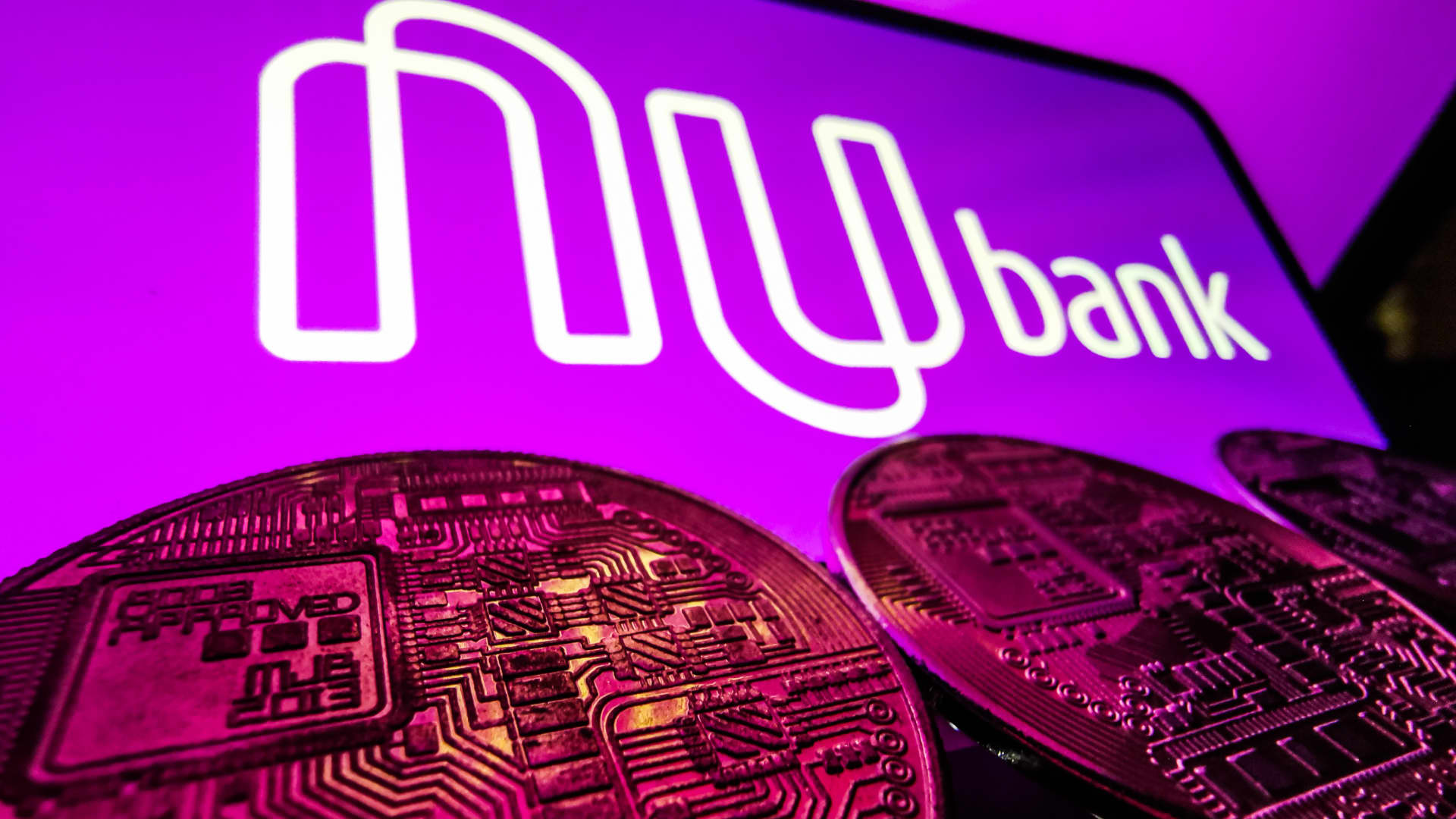The Brazilian digital banking startup Nubank will launch its own cryptocurrency in the country next year, marking the latest move into digital assets by a large financial institution.
Nubank said Wednesday it will launch the token, called Nucoin, in the first half of 2023. In a press release, the company touts Nucoin as “a new way to recognize customer loyalty and encourage engagement with Nubank products.” Nubank said it plans to offer discounts and other perks to holders of the token.
“The project is another step ahead in our belief in the transformative potential of blockchain technology and to democratize it even more, going beyond the purchase, sale and maintenance of cryptocurrencies in the Nu app,” Fernando Czapski, general manager for Nucoin at Nubank, said in a statement.
Nubank said it would invite 2,000 customers to take part in a forum group for guiding the development of Nucoin, “adhering to common practices in blockchain projects,” according to the firm. “In this phase, more than feedback, the proposal is to explore a decentralized process of product creation, characteristic of Web3,” Nubank said.
The cryptocurrency was built on the Polygon network, a so-called “Layer 2” protocol that aims to alleviate congestion on the Ethereum blockchain, where transactions can often be costly and take long to process. Polygon says its platform is able to support thousands of transactions per second.
Nubank isn’t the first bank to launch its own cryptocurrency. JPMorgan rolled out its own token, JPMCoin, a so-called stablecoin that maintains a one-to-one peg to the U.S. dollar. Unlike that coin, Nucoin’s price fluctuates in value based on supply and demand, similar to coins like bitcoin and ether.
It follows other steps from banking and payment companies into the crypto market. In October, Mastercard launched a new tool, Crypto Secure, aimed at helping card issuers prevent fraud involving crypto exchanges. Firms like PayPal and Robinhood also offer trading in cryptocurrencies. The Wall Street bank Goldman Sachs, meanwhile, has its own internal crypto trading desk.
The new token offering comes against a bleak backdrop for cryptocurrencies. The market is currently in a deep downturn investors are calling “crypto winter,” with many digital coins — including the world’s largest, bitcoin — having lost over half of their value since the start of 2022.
Regulators have since gotten more wary about digital currencies and the potential harms they pose to consumers, with governments in the U.S., European Union and elsewhere introducing frameworks for regulating the industry.
Asked whether Nubank had sought regulatory approval in Brazil before launching its token, a spokesperson for the company said it “constantly evaluates the regulatory framework as an important part of our product development process.”
Nubank launched in 2013 with a purple no-fee credit card in Sao Paulo, Brazil, a country notorious for its high-fee, low-tech banking system. Since its launch nine years ago, the company has amassed 70 million users across Brazil, Mexico and Colombia.
Nubank, which went public late last year, counts famed investor Warren Buffett among its roster of backers. Buffett’s firm Berkshire Hathaway took a $500 million stake in Nubank in June 2021. The company is valued by the stock market at $20.4 billion, roughly half what it was worth in its December 2021 debut.
Nubank has previously gotten into the crypto game through its Nucripto platform, which offers trading in a range of tokens including bitcoin and ether. The exchange, which relies on tech from blockchain infrastructure startup Paxos, reached 1 million users in July a month after launching.

